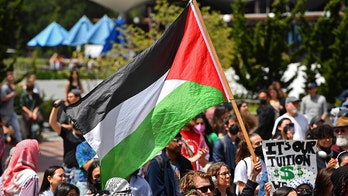Screening people fleeing from foreign countries for resettlementin the U.S. is a “stringent process,” but Americans aredeeply worried that ISIS will make good on its promise to sneakterrorists in among the 10,000 Syrian refugees President Obama isdetermined to admit into America next year.
“The problem is, the databases they’re checkingagainst likely won’t have anything about people inSyria,” Center for Immigration Studies Executive DirectorMark Krikorian told The Daily Caller News Foundation.“It’s not like they’re able to call up theDamascus police department. Records have either gone up in smoke orare not available to us.”
“If you don’t have the tools, it doesn’tmatter how hard you try,” he said. “You’re notgoing to be able to identify the bad guys.”
Obama administration officials insist the U.S. has a stringentvetting process for incoming refugees that can take as much as twoyears. It’s a process that is “the most stringent security process for anyoneentering the United States,†according to Department ofState spokesman Mark Toner.
His claim appears to flatly contradict FBI Director James Comey,who told Congress Oct. 21 that federal officialscan’t do thorough background checks on all incoming Syrianrefugees.
“If someone has never made a ripple in the pond in Syria in a way that wouldget their identity or their interest reflected in our database, wecan query our database until the cows come home, but there will benothing showing up because we have no record of them,” Comeytold the House Committee on Homeland Security.
One thing is beyond doubt — Syrian refugees have causedmassive security issues, especially across Europe.
One of the Paris attackers that killedat least 129 people Nov. 13 used a fake Syrian passport to enter France throughGreece, The Wall Street Journal reported. Eight other migrants used phony documents almostidentical to the Paris attacker’s to sneakpast authorities, according to the Daily Mail.
Forged Syrian passports, IDs or birth certificatescan be purchased in the Middle East for as little as $250,according to the Daily Mail. Fake documents could be aproblem for United States officials, too.
“Syrian government offices have beenlooted,” Krikoriansaid. Consequently, blank passports and other documentswere likely stolen that could be used to create legitimateidentification. Krikorian said federal officialsaren’t capable of distinguishing such forgeries from thegenuine articles.
Also, the sheer volume of 10,000 Syrian refugees entering thecountry in the next year is likely to degrade the effectiveness ofthe vetting process.
Less than 2,200 Syrian refugees have entered the country sinceMarch, 2011, when civil war broke out, Â which meansnearly five times more Syrian refugees will enter the United Statesnext year than the previous four years combined.
“I don’t see how they can admit 10,000 Syrianrefugees without cutting corners,” Krikoriansaid. “Honestly, I don’t think they’re going tomeet their target.”
Not only will that require federal officials to work faster inthe vetting process – potentiallyincreasing the chance of mistakes – but it willalso be more challenging to monitor the refugees once they arereleased into the United States.
Already, a refugee settled in Louisiana went missing Tuesday and was ultimately foundin Washington, D.C. hours later, TheDCNF reported.
Additionally, there are multiple examples of foreign-bornterrorists caught after entering the United States seekingasylum. “Two Iraqi refugees who settled inBowling Green, Kentucky, turned out to be al Qaeda- linked terrorists with the blood ofAmerican soldiers on their hands,” reported ABC News in2013.
Of the 784,000 refugees admitted to the United States since the9/11 attacks, however, only three have been arrested for planningterrorist activities, according to the Migration PolicyInstitute.
But federal officials need to be especially careful with Syrians, as they arebeing driven out primarily by ISIS – currentlythe best-known radical Islamic group dedicated to destroying theU.S. and Western society, Center for Immigration Studies ResearchDirector Steven Camarota told The Atlantic.
Most state governors are worried, but not all of them.
“The federal refugee review system has the highest levelof security checks of any traveler to American shores, includingbiometric and biographic checks and in-person overseas interviewsby federal officials trained to ensure that an applicant is a bonafide refugee and not a security risk,” Kelly Bachman, aspokeswoman for Delaware’s Democratic Gov. Jack Markell— who supports accepting Syrian refugees — toldTheDCNF.
Thirty-one other governors have said they willrefuse Syrian refuges.
The refugee vetting process can take upto two years and involves multiple federal agencies, including theState Department, the FBI and the Department of HomelandSecurity. Refugees must first apply to the UnitedNations Commission for Refugees, which then refers the applicant toa new country, such as the United States, reportedCNN. Refugees are then subjected to background checks,which include using biometric information to verify anapplicant’s identity, followed by an interview with a DHSofficer.




